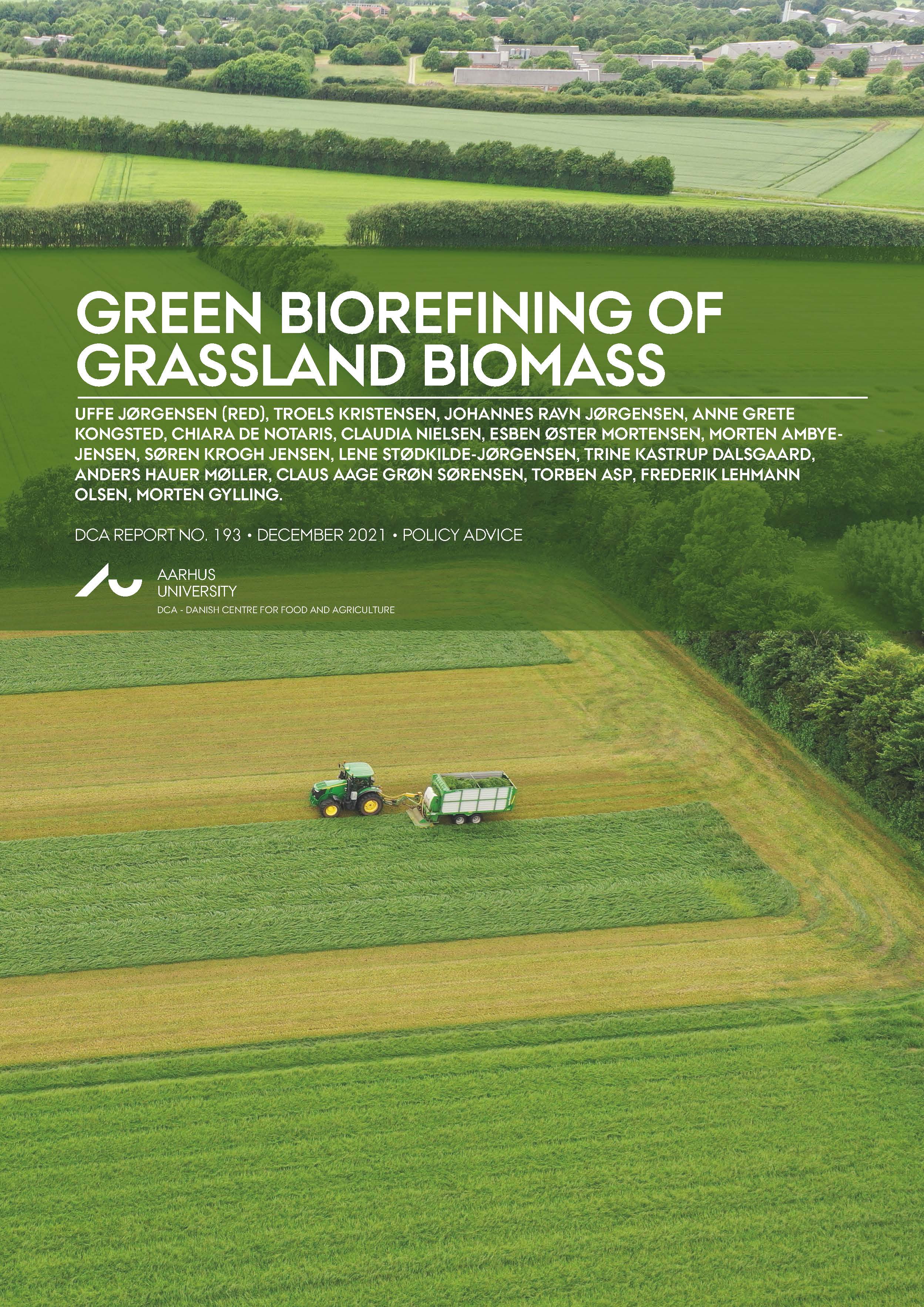DCA Publikationer
Green biorefining of grassland biomass
DCA rapport, nr. 193, 2021
Af Uffe Jørgensen, Troels Kristensen, Johannes Ravn Jørgensen, Anne Grete Kongsted, Chiara de Notaris, Esben Øster Mortensen, Morten Ambye-Jensen, Søren Krogh Jensen, Lene Stødkilde-Jørgensen, Trine Kastrup Dalsgaard, Anders Hauer Møller, Claus Aage Grøn Sørensen, Torben Asp, Frederik Lehmann Olsen, Morten Gylling
 Green biomass may be used to produce local protein, and substitute other protein sources, and at the same time obtain environmental benefits. Grass or grass-clover crops on arable land can deliver high yields of biomass as well as protein with a good amino acid profile. Grass from unfertilized permanent grassland may represent an opportunity if focus is on the fibre part of the grass. For cover crops to be an attractive supply of biomass, production systems need to be developed with a sufficiently high production to cover harvesting costs. Changing from wheat or maize to grass results in decreased N-leaching and greenhouse gas emissions. With current techniques, 40% of the protein in the green biomass can be recovered in a protein concentrate with protein content around 50% of dry matter, similar to soybean meal. Higher contents are possible for specialty applications. In addition, a fibre fraction containing 15-18% protein can be produced and used for ruminant feed, bioenergy production or further biorefined into chemical building blocks or used for bio-materials. Experiments have been performed on several animal species, where soy was replaced without negative effects on animal performance. High contents of unsaturated fat in the protein affect the meat and fat tissue and may be a limiting factor for the amount of included green protein.
Green biomass may be used to produce local protein, and substitute other protein sources, and at the same time obtain environmental benefits. Grass or grass-clover crops on arable land can deliver high yields of biomass as well as protein with a good amino acid profile. Grass from unfertilized permanent grassland may represent an opportunity if focus is on the fibre part of the grass. For cover crops to be an attractive supply of biomass, production systems need to be developed with a sufficiently high production to cover harvesting costs. Changing from wheat or maize to grass results in decreased N-leaching and greenhouse gas emissions. With current techniques, 40% of the protein in the green biomass can be recovered in a protein concentrate with protein content around 50% of dry matter, similar to soybean meal. Higher contents are possible for specialty applications. In addition, a fibre fraction containing 15-18% protein can be produced and used for ruminant feed, bioenergy production or further biorefined into chemical building blocks or used for bio-materials. Experiments have been performed on several animal species, where soy was replaced without negative effects on animal performance. High contents of unsaturated fat in the protein affect the meat and fat tissue and may be a limiting factor for the amount of included green protein.
The fibre fraction seems suitable for ruminant feeding replacing other types of silages. The first industrial scale biorefineries on green biomass for feed and bioenergy are now established in Denmark, while more research is needed to evaluate the protein quality for food applications, and in addition a full EFSA approval. There are major uncertainties in the economic assessment of establishing a full-scale biorefinery. Major obstacles are transportation costs and uncertainty in running cost for the biorefinery. The largest prospects are within the organic sector where there is a need for locally sourced, sustainable protein.
